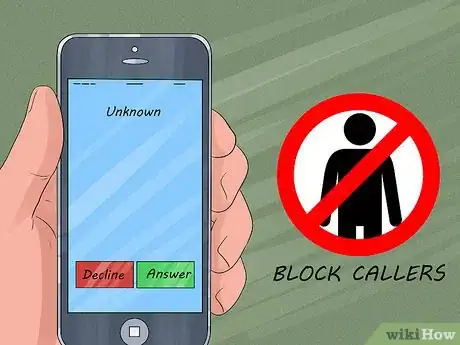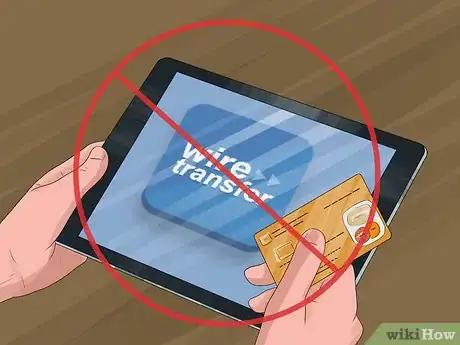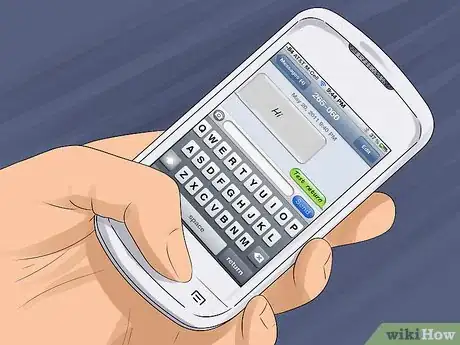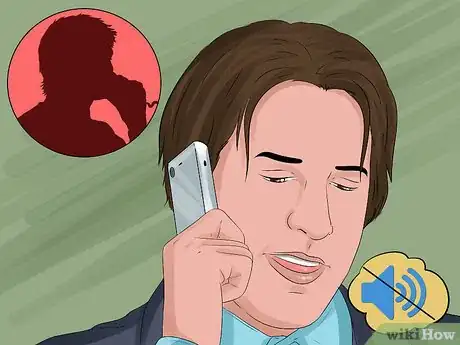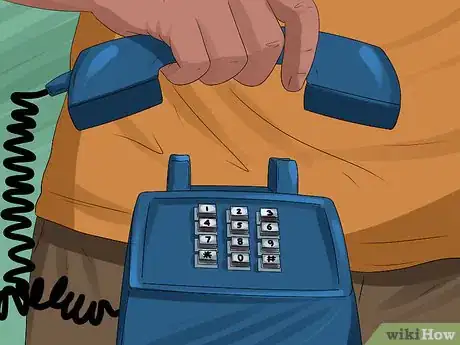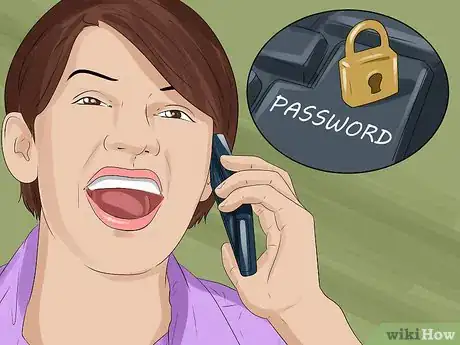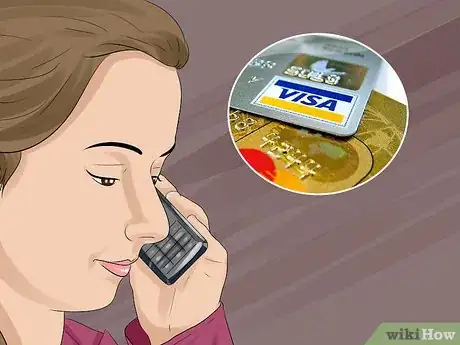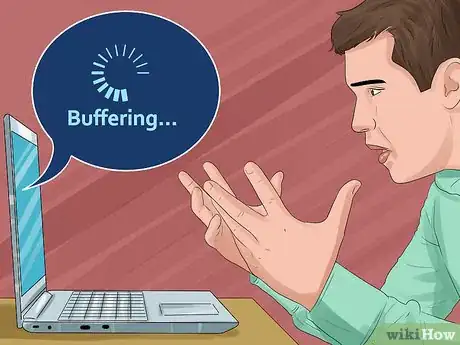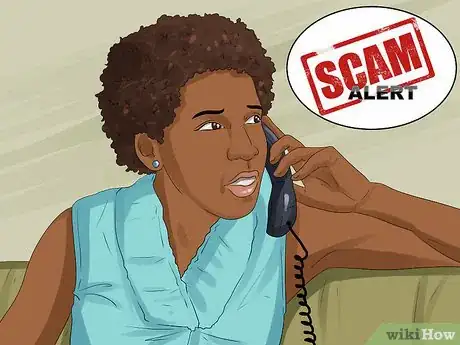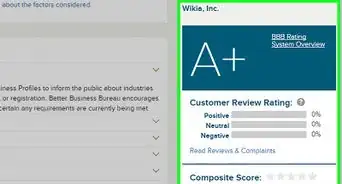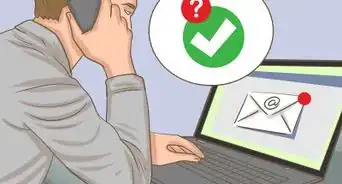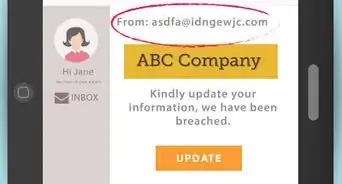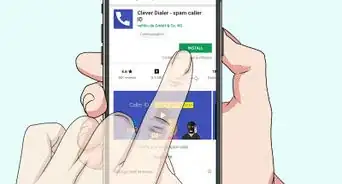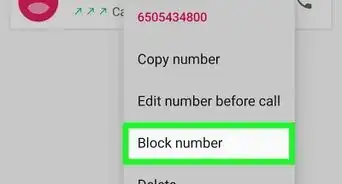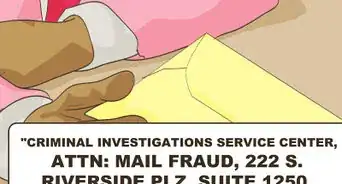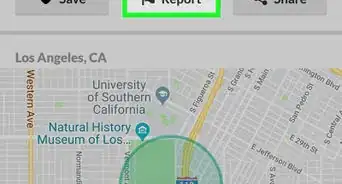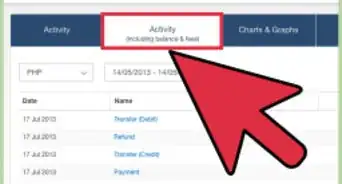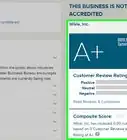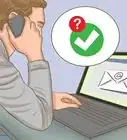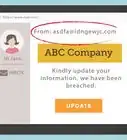X
wikiHow is a “wiki,” similar to Wikipedia, which means that many of our articles are co-written by multiple authors. To create this article, 13 people, some anonymous, worked to edit and improve it over time.
This article has been viewed 35,752 times.
Learn more...
There are so many online scammers that wait for the right moment to trap you with wrong intentions. These scammers might call you and claim to be from reputed tech support providing companies. They might try to trick you into scams related to wired money, sweepstakes, or other convincing scenarios. Be savvy with any information you give out over the phone, and you'll be in better shape to avoid such a scam.
Steps
Part 1
Part 1 of 2:
General Good Practices
-
1Don't answer unknown callers. It is recommended to avoid unknown calls and entertain any unknown service provider that tries to sell services to you. Moreover, if you are really inclined towards their services, ensure you perform online research to know reputation of the company.
-
2Don't get into deal with wired money. Many scammers ask clients to wire money, it is impossible to reverse cash when using wired money given. If a seller keeps on insisting you to wire transfer for making payments, do not act unless you are sure about the authenticity of the deal.Advertisement
-
3Never reply to messages asking you for financial/personal information. No matter, whether you are receiving messages in the forms of text, email, advertisement, or phone call, you need not to share your financial or personal information with the unknown message senders. This is called “phishing.” Eventually, these crooks try to trick you for stealing sensitive information.
-
4Don't fall for lottery scams. These scams involve sending a message about winning a lottery, and all you have to do is pay “custom duties” or another kind of “fee”. You have not won the lottery, and you are giving away your personal information.
-
5Hang up on robocalls. Robocalls are illegal if the company calling you has not done business with you in the past month. Do not press any buttons to speak with an operator, or any buttons to be removed from any list. This could result in more robocalls.
- A robocaller's phone number rotates because they use a Voice-Over Internet Protocol service overseas. Blocking the phone number does very little to prevent robocalls.
-
6Get a call blocking app. These apps are able to block and automatically block the unwanted phone numbers from ever reaching your phone, even if you later switch to a different phone. While not all apps are perfect, they should prevent you from getting most unwanted calls.
- Depending on your carrier, you may have to pay for call blocking. You may also have to pay to get more premium features (such as revealing phone numbers of unknown callers).
Advertisement
Part 2
Part 2 of 2:
Knowing How to Deal with Scammers on the Phone
-
1Do not confirm or deny your identity until you know who is calling. Legitimate calls will indicate who they are and where they are from.
-
2Decide how to proceed depending on your comfort level after getting the information. After the caller has identified themselves, you have the option to (A) acknowledge yourself, (B) gather more information about the caller without identifying yourself, or (C) just hang up.
-
3Check the legitimacy of any agency, organization or company calling you cold by doing a quick online search while on the phone.
- Ask for the caller's name and company (including phone number and contact address) and reason for calling you. If this is not provided to you within 10 seconds, hang up. Chances are, it's a scam.
- Type the address or phone number into Google. The first result had better be them. If it's a real company, then they will happily give you their contact information. If you can't search while talking at the same time, ask the caller to hold on for a minute for a personal matter, but use the time to check out the company on the internet.
- If it doesn't exist, immediately be suspicious. You could also look for feedback about the company or type of call. Government sites aimed at revealing scams may be helpful here too.
- You can even be polite. For example, ask them for their phone number, extension, and what this is regarding. Then let them know that you will call them back. If they do give you a phone number never call them back at that number. Use that number to look up the company and use the company's contact number to call them back. The number they give is likely phony.
- Real companies want you to call them back. Sales calls are more likely to make a sale if you call them. And banks get a thrill when customers practice real security by calling back on the bank's official support number. If the caller pressures you to stay on the line, then it is a scam.
- If you get a “political survey” from a “non-profit”, then confirm by using the IRS's website. Select the type of form (8871, 8872, or 990. If you don't know, just select all three) and enter the organization's name. If the search does not identify the organization, then they are not exempt. Also compare phone numbers. If none of the details match, then it is likely a scam.
-
4Do not disclose personal information or passwords. Do not confirm computer usage, ownership of anything in your house or account numbers. Once again, it is nobody's business and the fact callers are asking for this sort of information should immediately alert you to the possibility of a scammer.
- If you have identified yourself and greeted the caller but the caller fails to acknowledge this and speak instantly in a conversation, but asks to speak with you, suspect that they are transferring you between sales teams or the like and are not someone who knows you.
-
5Ask what the caller wants early in the call. Your time is precious but so is the fact that the more hot air the caller exudes, the more likely it is that they're trying to lull you into buying their stardust. If the information they provide is not specific, then hang up. It's a scam.
-
6Never use affirmative until you know that the call is legit. Your affirmation may be recorded and used for fraudulent purchases.
-
7Record the call. You will be amazed at the number of cold calls that hang up on you when you ask these basic questions. Ask for basic information, such as who is calling or the address. If the call is disconnected, then it is a scam.
- A real company won't hang up on a prospective or existing customer. Remember that.
-
8Do not go to fake websites following the prompts of cold call. If you do, chances are that you're downloading a virus, allowing access to your computer or giving away precious personal information that they'll do unspeakable and ruinous things with. Just do not do it!
- They do not know anything unless if you were tapped or if they installed rootkits on your computer.
-
9Be strong and put safety first. You get all sorts of phone calls. Friends, family, business associates, scams, and fraudulent callers. Just asking basic questions and verifying caller information can easily stop you from making a big mistake. Some of these rules may come off sounding rude. But remember: it's rude for a scammer, telemarketer, and fake non-profit to call you. Real companies won't be offended.
Advertisement
Community Q&A
-
QuestionHow can I verify if someone is using my Social Security Number to work?
 AasimTop AnswererThere is no true way of knowing. However, identity theft protection will help you figure out where your personal information is on the web is stored and how it is used. It will then protect you if your debit card gets stolen or if your SSN is misused.
AasimTop AnswererThere is no true way of knowing. However, identity theft protection will help you figure out where your personal information is on the web is stored and how it is used. It will then protect you if your debit card gets stolen or if your SSN is misused. -
QuestionIs it okay to prank call scammers?
 Community AnswerIt is not a good idea to prank call anyone, including scammers.
Community AnswerIt is not a good idea to prank call anyone, including scammers. -
QuestionHow can I report such things?
 AasimTop AnswererYou can submit reports to the FTC or your carrier. Check their websites for details.
AasimTop AnswererYou can submit reports to the FTC or your carrier. Check their websites for details.
Advertisement
Warnings
- Call the local authorities if this is a person who is calling and harassing you. If you fell for a phone scam, notify the Federal Trade Commission immediately, and take action immediately to further protect your information.⧼thumbs_response⧽
Advertisement
About This Article
Advertisement
